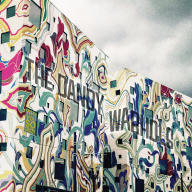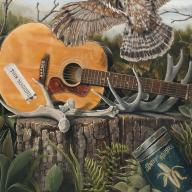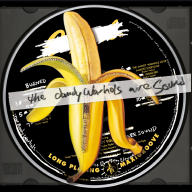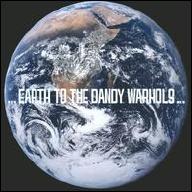Vocalist/guitarist Courtney Taylor, keyboardist Zia McCabe, guitarist Peter Holmström, and drummer Eric Hedford formed the Dandy Warhols in Portland, Oregon in 1994. The band signed a deal with the local label Tim/Kerr Records after their first show, and their debut album Dandys Rule OK? appeared in 1995. Featuring songs such as as "Lou Weed" and "Ride," it openly acknowledged the influence of the Velvet Underground and Ride on the band's music.
Capitol Records signed the group the same year, but after the label rejected their first attempt at a second album, the band reunited with Dandys Rule OK? producer Tony Lash to make 1997's Dandy Warhols Come Down. A more polished-sounding set than their debut, the album earned the Dandy Warhols more critical acclaim and more substantial commercial success. This was especially true in the U.K., where the album was certified gold and its three singles entered the Top 40. In the U.S., the single "Not If You Were the Last Junkie on Earth" hit number 31 on the Billboard Alternative Songs chart. In 1998, Hedford left the band, with Taylor's cousin Brent DeBoer replacing him as drummer.
The Dandy Warhols returned in 2000 with their third album Thirteen Tales from Urban Bohemia, which downplayed their psych leanings in favor of sharp-edged pop such as the single "Bohemian Like You." One of the band's definitive songs, it peaked at number 28 on Billboard's Alternative Songs chart in the U.S. and reached number five on the U.K. Singles Chart in 2001. In November of that year, the Dandy Warhols opened the Odditorium, a recording studio in northwest Portland that also functions as art and event space. In 2002, Holmström married his longtime girlfriend and took her maiden name of Loew. Taylor also changed his name, opting to go by Courtney Taylor-Taylor after an interviewer misinterpreted the pronunciation.
To make their fourth album Welcome to the Monkey House, the Dandy Warhols worked with with Nile Rodgers, Duran Duran's Nick Rhodes, and Evan Dando. After Capitol turned down the original mix by Grammy-winning soul music engineer Russell Elevado, the final version of the album featured a synth-pop and new wave-influenced mix by Rhodes. Upon its release in 2003, it went to number 118 on the Billboard 200 Albums chart and spawned another hit for the band, the synth-disco jam "We Used to Be Friends." Following live shows that included supporting David Bowie on a leg of his 2003 A Reality tour, the band remained prominent in 2004 thanks to Ondi Timoner's documentary Dig!, which chronicled the love-hate relationship between the Dandy Warhols and the Brian Jonestown Massacre and won the Documentary Grand Jury Prize at that year's Sundance Film Festival. Also in 2004, the band released The Black Album -- their name for their rejected Capitol debut -- and the compilation Come on Feel the Dandy Warhols as a double-album set via their own label Beat the World Records.
The Dandy Warhols returned with new music in 2005. Odditorium or Warlords of Mars, an expansive return to the band's psych-rock roots, appeared that September, peaking at number 89 on the Billboard 200 Albums chart. Soon after, the band contributed a cover of the Everly Brothers' "All I Have to Do Is Dream" to the soundtrack of the video game Stubbs the Zombie in Rebel Without a Pulse (the song also appeared on Stubbs the Zombie: The Soundtrack). A couple of other stand-alone tracks also arrived, including the 2006 single "Have a Kick Ass Summer (Me and My Friends)" and the theme song to the 2007 film Good Luck Chuck. The band's sixth album, and first for Beat the World, 2008's Earth to the Dandy Warhols, featured collaborations with Mark Knopfler and the Heartbreakers' Mike Campbell; the album reached number 128 on Billboard's 200 Albums chart and spawned two remix EPs.
Over the next few years, the Dandy Warhols' output included contributions to the Cure tribute album Perfect as Cats and the Love and Rockets tribute album New Tales to Tell: A Tribute to Love and Rockets. They also issued archival releases: Dandy Warhols Are Sound, which presented Russell Elevado's original mix of Welcome to the Monkey House, arrived in 2009, while the following year's greatest-hits collection The Capitol Years 1995–2007 included the previously unreleased "This Is the Tide," the first Dandy Warhols song with DeBoer on vocals. During this time, the band's members focused on other projects, ranging from Taylor-Taylor's 2009 graphic novel One Model Nation to DeBoer's 2010 solo debut, The Farmer. Loew's other band, Pete International Airport, also issued their self-titled debut in 2010, while McCabe's country band Brush Prairie released the EP Carry Yourself Back to Me in 2011. That year, the Dandy Warhols recorded an alternate version of the MythBusters theme song that the TV show used until the end of its 2014 season.
In 2012, the Dandy Warhols resurfaced with their eighth album This Machine, a more subdued set of songs that hit number 88 on the Billboard 200 Albums chart, a career high for the band. The album, which featured a collaboration with David J, also appeared on the Top Rock Albums and Alternative Albums charts, reaching number 29 and 21 respectively. The following year, they rang in the 13th anniversary of Thirteen Tales from Urban Bohemia with a deluxe version of the album and a tour that resulted in the band's first-ever live album, 2014's Thirteen Tales from Urban Bohemia Live at the Wonder. A second live recording, Live at the X-Ray Cafe, was released by Voodoo Doughnut for Record Store Day in 2016; the EP captured their eighth gig ever from 1994. That year, the Dandy Warhols released the patient and pastoral album Distortland. Upon its release that April, the album reached number 43 on Billboard's Rock Albums chart. In 2017, the band issued the single "Thick Girls Knock Me Out (Richard Starkey)," while Pete International Airport released its second album, Safer with the Wolves... The Dandy Warhols' tenth album, the eclectic Why You So Crazy, arrived in January 2019 and commemorated their 25th anniversary. ~ Heather Phares & Neil Z. Yeung, Rovi


















